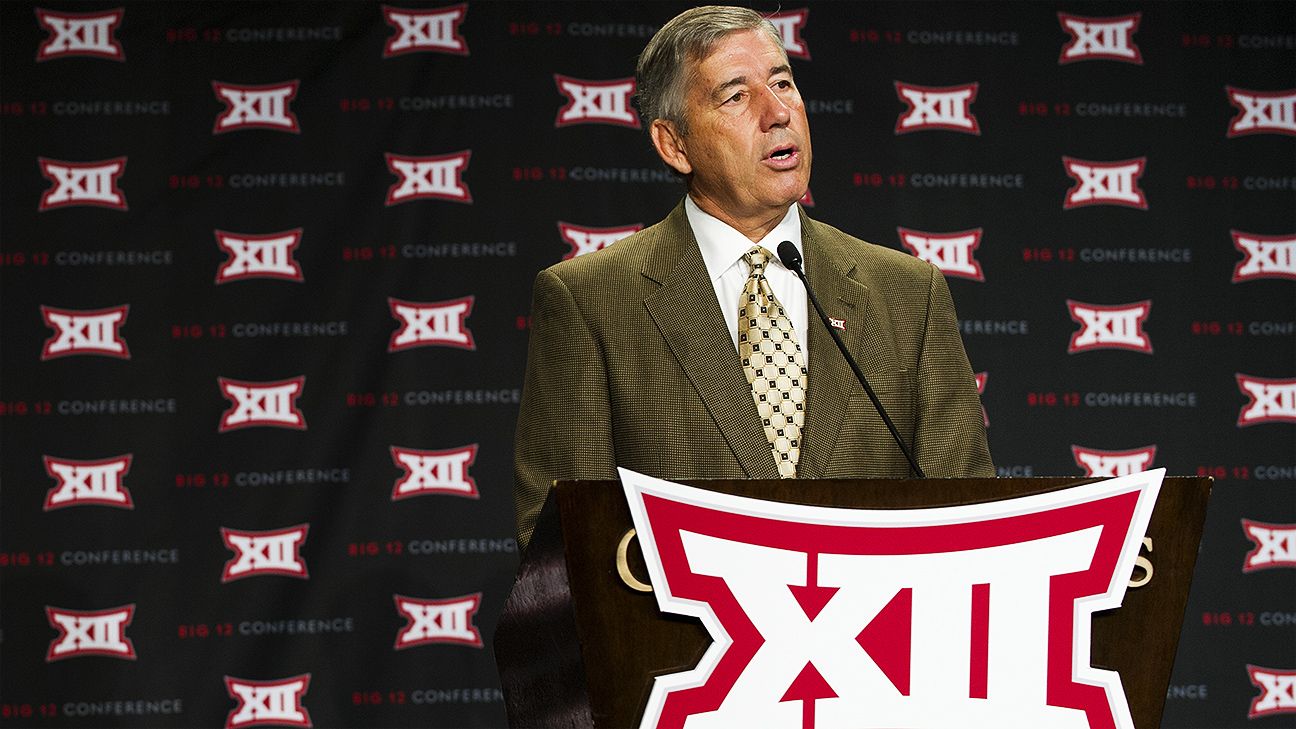Big 12 commissioner Bob Bowlsby has been speaking with the other Power 5 conference commissioners daily and said on Thursday that he remains concerned about “whether or not we can have a full and robust football season” as the future of the sport remains uncertain because of the coronavirus pandemic.
“Virtually every program is highly reliant on football revenue,” he told ESPN. “We’re making lots of contingency plans, but if you don’t get the anticipated number of games in, you lose the donations, you lose the sponsorships, you lose the gate receipts and you lose the TV. It’s potentially very impactful.”
Bowlsby declined to say which specific models the league is considering if the season has to be altered or pushed back. The Big 12 implemented a 10% salary cut across the board in the conference office, including for Bowlsby, he said.
“We’ve eliminated all year-end bonuses and are formulating a reduced scope of operation plan that saves quite a bit of money, but we’re a relatively small operation,” he said. “Most of our resources are passed through to our members.”
Bowlsby said the conference isn’t ready to put any deadlines on any decisions.
“We don’t know when somebody is going to tell us it’s going to be OK to go back to close contact,” he said. “I suspect that medical experts and scientists are going to be slow to give the green light on that. The magic start date is probably a mirage.
“It may be different in some high-density populations and areas than it is in more remote areas,” he said. “It could be certain parts of the country and not other parts of the country. I don’t think there’s just going to be a day when we turn it all on again. There has to be a reacclimation period because athletes aren’t training at the same level they had been accustomed to.”
Last month, Bowlsby said he expected the league to receive about $10 million from the NCAA, instead of an anticipated $24 million.
Bowlsby said the cancellation of the Big 12 basketball tournaments would result in about $6.6 million in losses. With the league eliminating some costs related to travel, staffing and other expenses, he estimated the overall losses between $15 million and $18 million.
Bowlsby said he anticipated the Big 12 would still be able to “make members whole” in financial distributions this year by using its reserves.
The Big 12 distributed $373.9 million for the fiscal year ending in June 2018, with distributions ranging from $36.6 million to Oklahoma to $33.6 million to Kansas.
“With the uncertainty of competition next year, those revenue streams become potentially less stable,” he said.
Bowlsby said universities are under “tremendous financial stress” and aren’t in a position to help their athletic departments, but that most in the Big 12 are self-sustained.
“If it was just something that was unique to athletics, it would be different, but universities are giving back board and room charges, and they’re refunding tuition and they’re doing things, cancelling summer school and doing things that have previously generated cash flow,” he said. “They’re not able to do anything really to help the athletics programs very much.
“Especially at our level, they tend to be self-funded for the most part. The institution isn’t capable of making up lost revenue. What do you do? You have to reduce operations. To reduce at levels that could be imagined is enormously difficult.”
